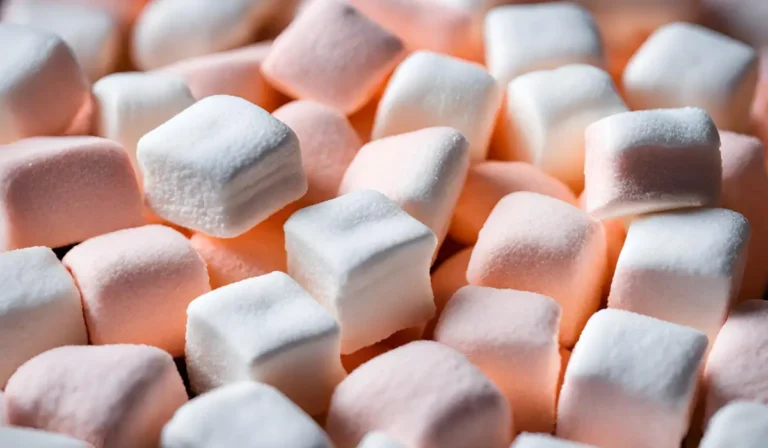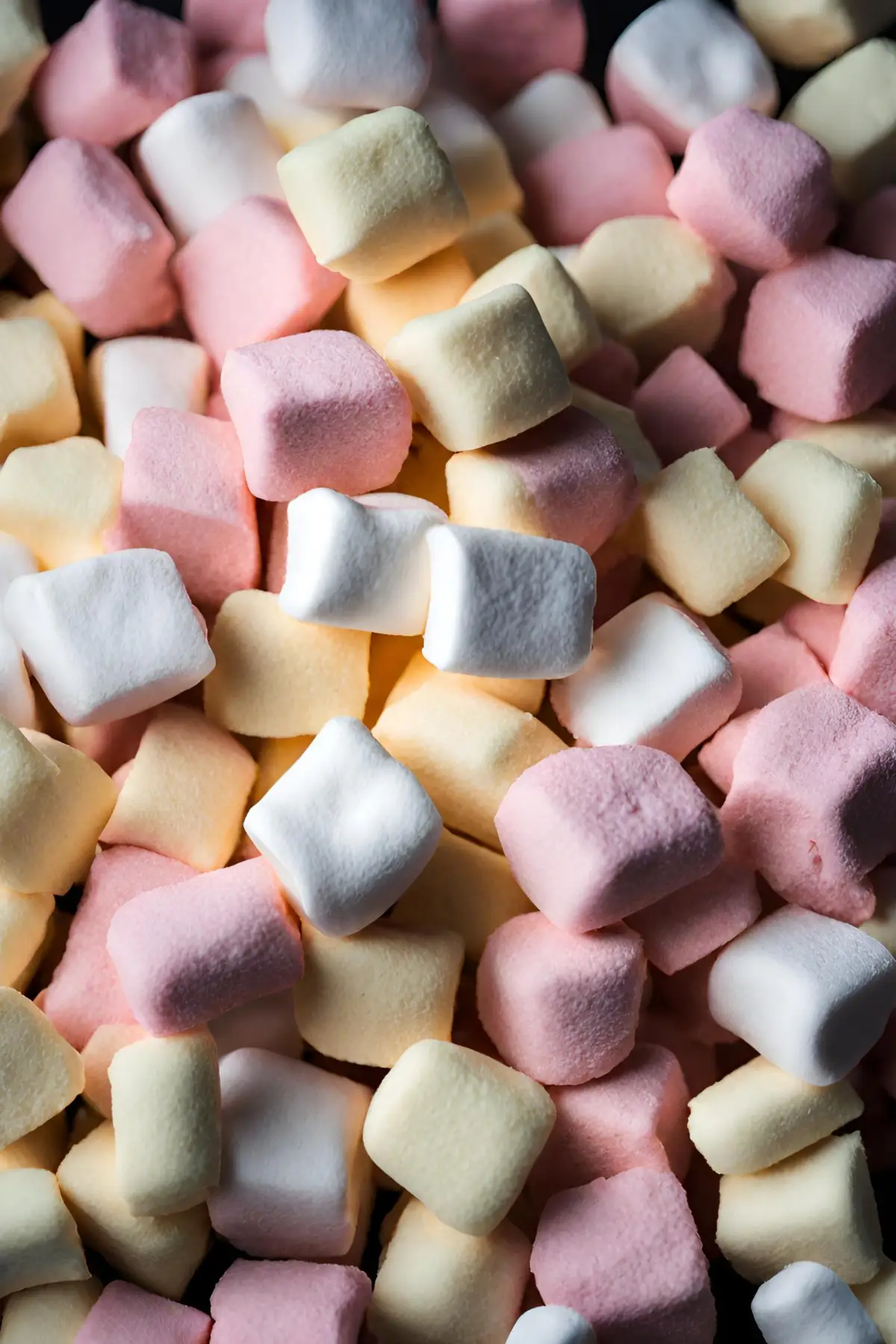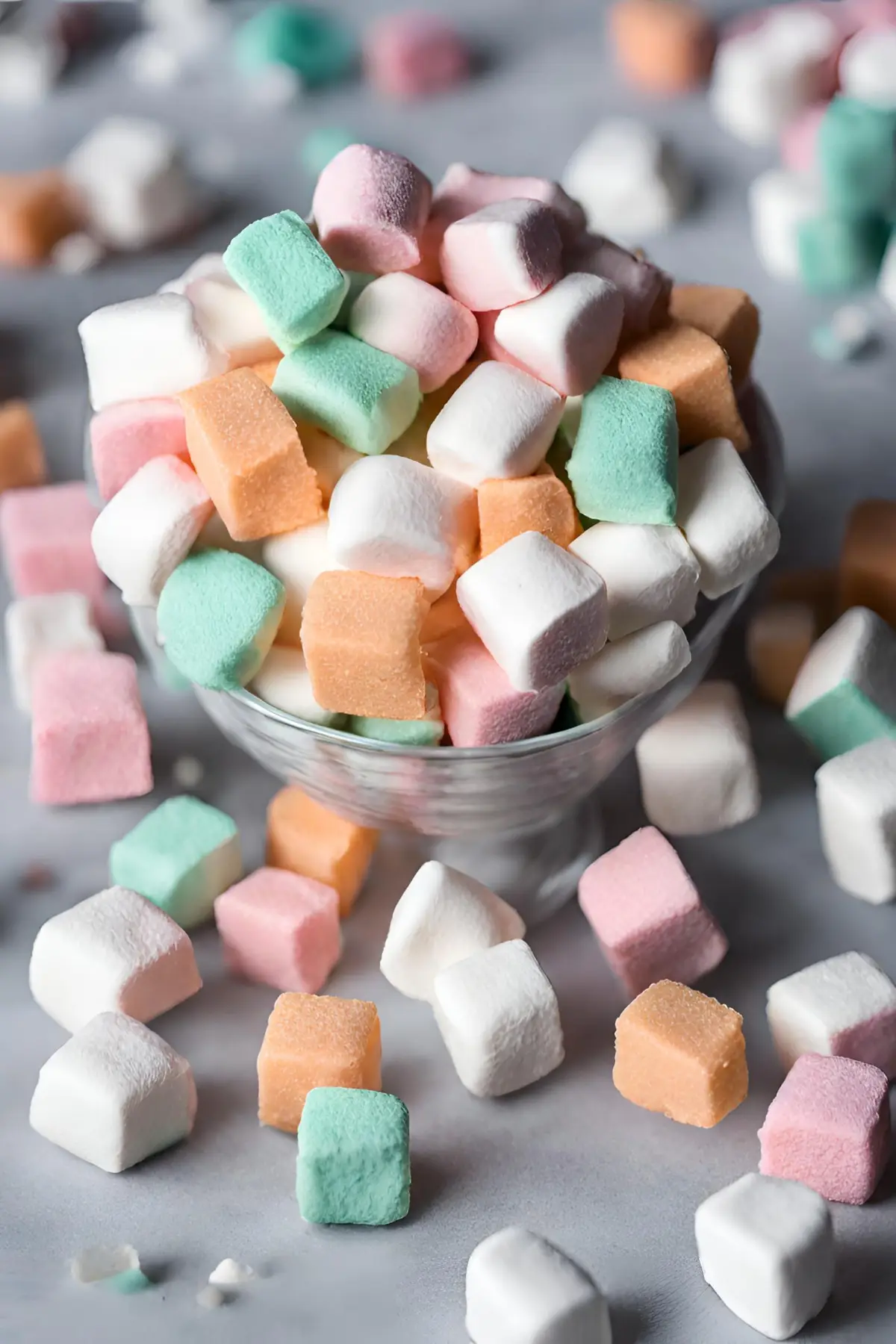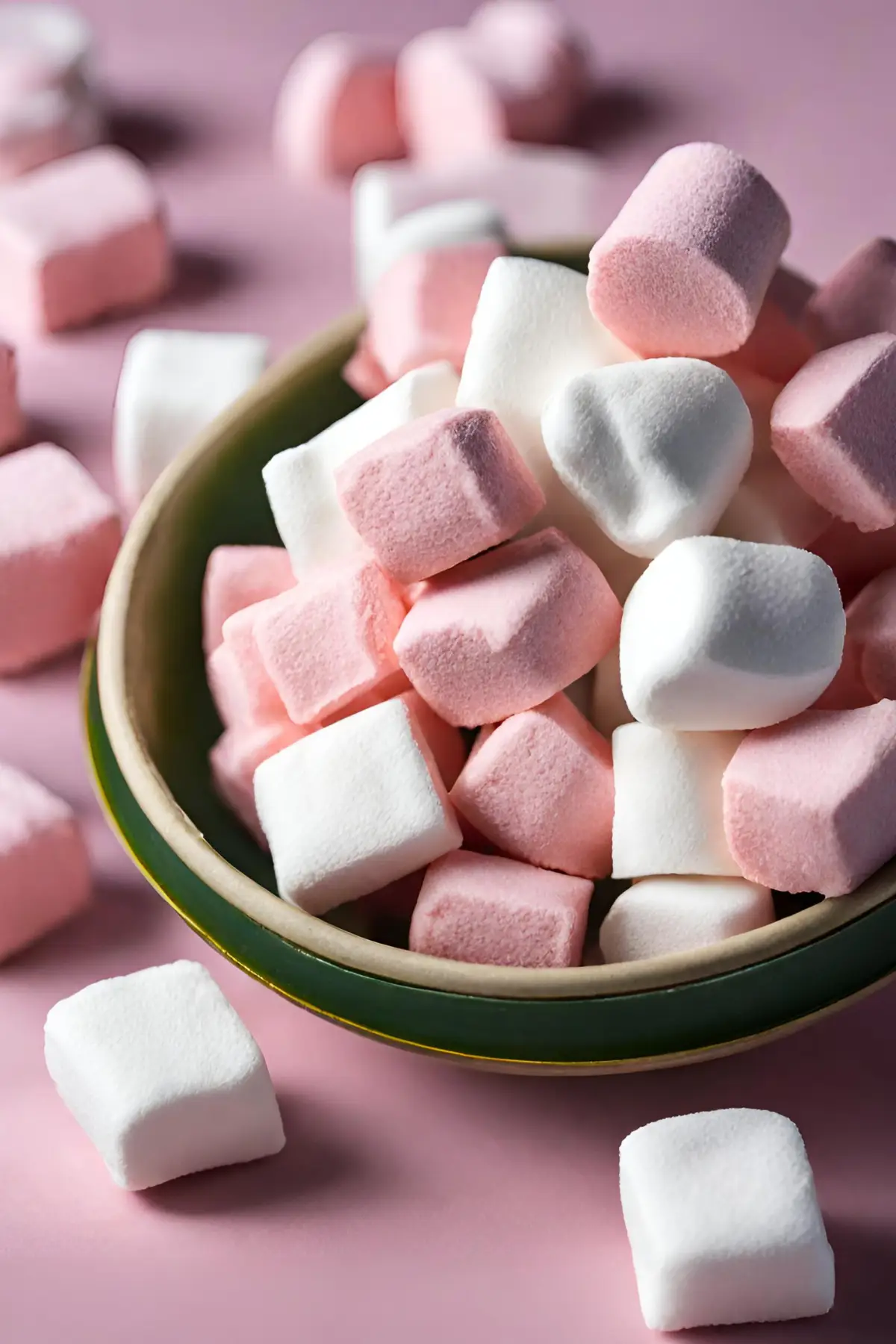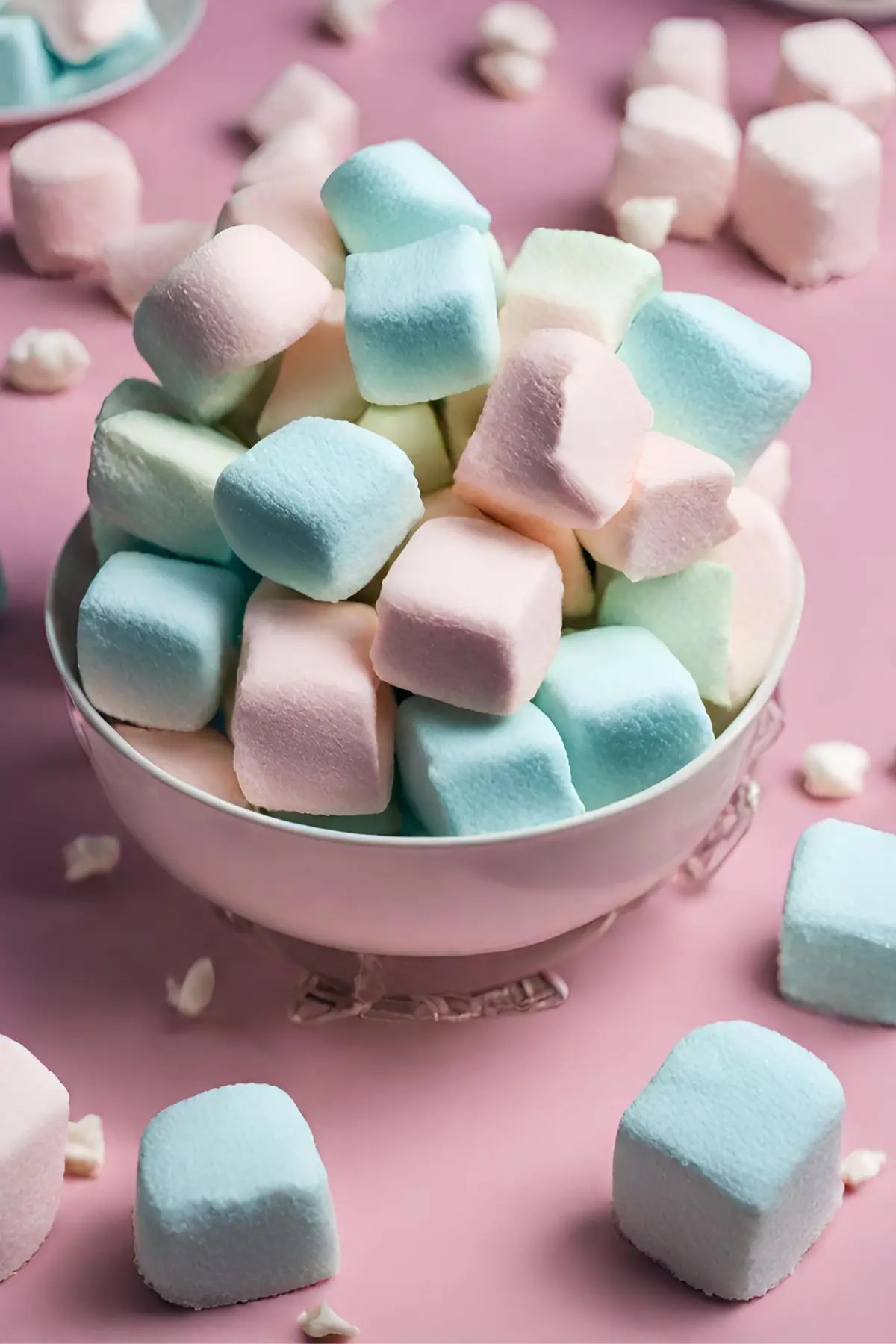Can Muslims Eat Marshmallows? Understanding the Islamic Dietary Perspective
As a Muslim, you might have pondered the question, “Can Muslims eat marshmallows?”. This query delves into the broader discussion of what constitutes halal and haram in Islamic dietary laws. The answer is not straightforward and hinges on several factors, including the ingredients and the process of making marshmallows.
What Makes Food Halal or Haram in Islam?
In Islam, foods are categorized as halal (lawful) or haram (forbidden) based on specific guidelines. These classifications are crucial as they not only affect physical health but also spiritual well-being. To understand this better, one can refer to “An Introduction to the Practice of Islam”, which provides insights into Islamic dietary practices.
- Halal: Foods that are permissible under Islamic law.
- Haram: Foods that are prohibited, which include pork, alcohol, and any meat not slaughtered according to Islamic rites.
Marshmallows: Ingredients and Concerns
Marshmallows are a popular confectionery, often enjoyed in various forms. However, their halal status is questionable due to one key ingredient: gelatin. Gelatin is derived from animal bones, skins, and tissues, and its source determines whether marshmallows are halal or haram.
- Gelatin from Halal Animals: If the gelatin is sourced from animals slaughtered according to Islamic law, the marshmallows are considered halal.
- Gelatin from Haram Animals: If it comes from prohibited animals like pigs, the marshmallows are haram.
The Gelatin Controversy
The use of gelatin in marshmallows is a contentious issue within the Muslim community. There are differing opinions on whether the transformation process of gelatin makes it permissible or not.
- Some Islamic scholars argue that if gelatin undergoes a complete transformation, it loses its original impure form and becomes halal.
- Others contend that the transformation is not sufficient to change its status from haram to halal.
For more detailed information on this topic, visit WeHalal’s article on Halal Marshmallows, which explores the nuances of gelatin in Islamic dietary law.
Halal Certification Process
The halal certification process is a crucial mechanism for ensuring that food products, including marshmallows, comply with Islamic dietary laws. This process not only provides peace of mind for Muslim consumers but also opens up markets for food producers by meeting the dietary needs of a global Muslim population. Here’s an overview of the certification process and alternatives to traditional marshmallows that use pork gelatin.
1. Application and Documentation
The manufacturer or producer submits an application to a halal certification body, along with detailed information about the product, ingredients, and manufacturing processes.
2. Audit and Inspection
Certification bodies conduct thorough audits and inspections of the manufacturing facilities, processes, and supply chains to ensure that they meet halal standards. This includes verifying that no haram (forbidden) substances are used in the products or during the production process.
3. Assessment
The certification body assesses the compliance of the product and its production process with Islamic dietary laws. This assessment covers the sourcing of ingredients, the cleanliness of the production facility, and the avoidance of cross-contamination with non-halal items.
4. Certification
If the product meets all halal requirements, the certification body issues a halal certificate. This certificate is usually valid for a specific period, after which the company must undergo re-certification.
5. Labeling
Certified products are then labeled with a halal mark, making it easy for consumers to identify them as compliant with Islamic dietary laws.
Alternatives to Traditional Marshmallows
For those looking for halal or vegetarian alternatives to traditional marshmallows, which often contain pork-derived gelatin, there are several options available:
1. Plant-Based Gelatin
Marshmallows can be made using agar-agar, carrageenan, or pectin instead of animal gelatin. These plant-based gelling agents create a similar texture to gelatin-based marshmallows and are entirely halal and vegetarian.
2. Halal-Certified Gelatin
Some marshmallows are made with beef gelatin that has been certified halal. These marshmallows provide the same texture and taste as traditional ones but are permissible for Muslims to consume.
3. Halal-Certified Brands
There are brands that specialize in halal-certified products, including marshmallows. These products have been verified to adhere to halal guidelines, offering a trustworthy option for Muslims.
By understanding the halal certification process and knowing the alternatives to traditional marshmallows, Muslim consumers can make informed choices about the foods they consume, ensuring they adhere to their dietary laws.
How to Identify Halal Marshmallows
Identifying halal marshmallows in stores or creating them at home is a straightforward process that ensures adherence to dietary laws while still enjoying this sweet treat. Here’s a detailed guide to help you through both processes:
1. Check Labels
Always start by reading the ingredient list on the packaging. You’re looking for any haram substances, with the primary concern being the source of gelatin. If the gelatin is derived from pork or any non-halal slaughtered animal, the marshmallows are not permissible. Some labels might explicitly state “pork gelatin,” making it easier to identify.
2. Look for Certification
Products that are halal certified will have a mark or logo from a recognized halal certification authority. This certification ensures that the product meets the strict dietary standards set by Islamic law. Halal certification marks are your assurance that the product is permissible for consumption.
Making Halal Marshmallows at Home
Creating your own marshmallows is a rewarding experience, especially when you need them to meet specific dietary requirements. Here’s a basic guide to making halal marshmallows:
Ingredients:
- Water
- Sugar
- Halal gelatin or agar-agar powder (for a vegetarian option)
- Corn syrup (optional, for texture)
- Cornflour and icing sugar (for dusting)
- Flavoring (vanilla, rosewater, etc., as preferred)
- Food coloring (optional)
Equipment:
- Mixing bowls
- A pan for heating the sugar mixture
- A mixer (stand or hand mixer)
- A spatula
- A baking pan or tray
- Plastic wrap or aluminum foil
Steps:
-
Prepare the Pan: Line a baking pan or tray with plastic wrap or aluminum foil. Mix cornflour and icing sugar in a separate bowl, and dust some of this mixture onto the lined pan to prevent sticking.
-
Gelatin Mixture: In a bowl, sprinkle halal gelatin or agar-agar powder over cold water. Let it bloom for about 5 to 10 minutes.
-
Sugar Syrup: In a pan, combine sugar, corn syrup (if using), and a little water. Cook over medium heat until the sugar dissolves. Increase the heat and bring to a boil without stirring, until it reaches the soft-ball stage (about 240°F or 115°C).
-
Combine: With the mixer on low, slowly add the hot sugar syrup to the bloomed gelatin. Increase the speed to high and continue whipping until the mixture becomes thick and fluffy (about 10-12 minutes). Add flavoring and food coloring during the last few minutes of whipping.
-
Set: Pour the mixture into the prepared pan, smoothing the top with a spatula. Dust the top with more of the cornflour and icing sugar mixture. Let it set at room temperature for at least 4 hours, or overnight.
-
Cut and Serve: Once set, turn the marshmallow slab onto a surface dusted with the cornflour and icing sugar mixture. Cut into squares or desired shapes. Dust all sides of each marshmallow with the mixture to prevent sticking.
Making marshmallows at home allows you to customize flavors, colors, and shapes while ensuring they meet halal standards. Enjoy your homemade halal marshmallows as a treat on their own, in hot beverages, or as part of desserts.
FAQs
Marshmallows occupy a unique position in various culinary traditions, often seen as a sweet treat or a key ingredient in desserts like s’mores. However, for Muslims adhering to halal dietary laws, the permissibility of consuming marshmallows can be a matter of concern. This concern primarily stems from the ingredients used in marshmallow production.
Are Marshmallows Haram?
Marshmallows themselves are not inherently haram (forbidden in Islam). The halal status of marshmallows depends on the ingredients used in their manufacturing. The critical factor that determines whether marshmallows are halal or haram is the source of gelatin, a key ingredient in marshmallow production.
Do Marshmallows Have Pork In Them?
Many commercial marshmallows contain gelatin derived from pork, which is haram for Muslims. Gelatin is a protein obtained by boiling skin, tendons, ligaments, and/or bones with water. It’s used in marshmallows to give them their unique, fluffy texture. Since pork is explicitly forbidden in Islam, marshmallows containing pork-derived gelatin are considered haram.
How Do I Know If Marshmallows Are Halal?
To determine if marshmallows are halal, look for halal certification on the packaging. Halal certification indicates that the product has been scrutinized by a certifying body and deemed permissible under Islamic law. Alternatively, you can review the ingredient list for any haram substances. Some marshmallows may use beef gelatin or fish gelatin, which can be halal if processed according to Islamic law. There are also vegetarian marshmallows made with agar-agar, a plant-based gelatin substitute, which are halal and suitable for Muslims.
Cultural and Social Considerations
Navigating dietary restrictions can indeed be challenging, especially in social settings where food plays a central role. For Muslims, it’s crucial to communicate dietary restrictions clearly to hosts or event organizers to avoid any discomfort or confusion. Likewise, offering halal alternatives or making dishes with universally acceptable ingredients can foster inclusivity and respect for diverse dietary laws.
In summary, marshmallows can be enjoyed by Muslims when they are made with halal-certified ingredients. Always checking the packaging for halal certification or familiarizing oneself with the ingredient list is advisable. By doing so, Muslims can enjoy marshmallows without compromising their dietary beliefs.
Conclusion
In conclusion, whether Muslims can eat marshmallows depends on the ingredients and the manufacturing process. By being informed and vigilant about halal guidelines, Muslims can make choices that align with their dietary and spiritual principles.
For more insights into delightful baking and cooking, explore our other articles:
- Discover the joy of baking with our Delicious Cinnamon Roll Cookies Recipe, perfect for those who love sweet treats.
- Learn versatile cooking methods with our Can Cooker Recipes, offering a range of dishes for every occasion.

Halal Marshmallows
- Total Time: 4 hours 40 minutes (including setting time)
- Yield: Approximately 24 marshmallows 1x
- Diet: Halal
Description
Halal marshmallows are a delicious, fluffy treat made without any haram (forbidden) ingredients, suitable for Muslim dietary laws. By using halal-certified or plant-based gelatin alternatives, these marshmallows offer the same sweet, airy texture as traditional ones.
Ingredients
- 2 cups granulated sugar
- 1 tablespoon halal-certified or plant-based gelatin (agar-agar)
- 1 cup water, divided
- 1/4 teaspoon salt
- 2 teaspoons vanilla extract
- Cornstarch and powdered sugar (for dusting)
Instructions
- In a bowl, sprinkle gelatin over 1/2 cup of water. Let sit to bloom.
- Combine sugar and the remaining water in a saucepan. Heat until sugar dissolves, then boil until the mixture reaches 240°F (soft-ball stage).
- With a mixer, combine the hot syrup with the bloomed gelatin. Add salt.
- Beat on high until the mixture thickens and triples in volume, about 10-12 minutes. Add vanilla extract.
- Dust a pan with a mix of cornstarch and powdered sugar. Pour the marshmallow mixture into the pan, smoothing the top.
- Let it set uncovered, at room temperature, for at least 4 hours or overnight.
- Dust a surface with the cornstarch and powdered sugar mix. Invert the marshmallow slab onto it and cut into pieces. Coat all sides of each marshmallow with the dusting mix.
Notes
- Agar-agar might result in a slightly different texture than gelatin. Adjust the amount to achieve the desired consistency.
- Ensure all ingredients, including the vanilla extract, are halal-certified.
- Prep Time: 30 minutes
- Cook Time: 10 minutes
- Category: Dessert
- Method: Boiling, Whipping
- Cuisine: International
Nutrition
- Serving Size: per marshmallow
- Calories: 50 kcal
- Sugar: 12 g
- Sodium: 10 mg
- Fat: 0 g
- Carbohydrates: 12 g
- Protein: 0.5 g (varies based on gelatin used)

